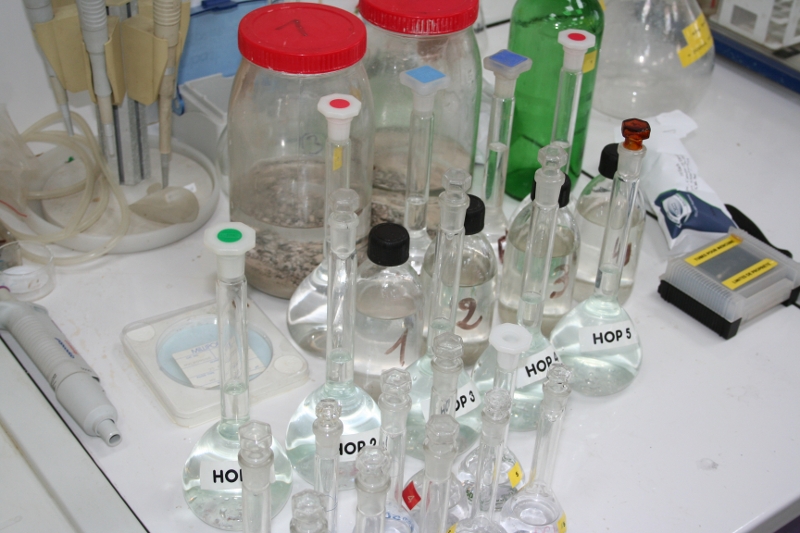
Water Sample Testing
At Dryness Certificate UK, we make use of various techniques for the purpose of pinpointing where water has come from; leak detection. While thermal imaging, ultrasound, density mapping, gas tracing, and dye testing are crucial tools, water sample testing is considered the most precise way of evaluating the kind of water that has resulted in the damage.
What is the Aim of Water Sample Testing?
The aim of water sample testing is to find out if the fluid which has resulted in the apparent water damage or flooding carries the identical or matching contents as another source of fluid/ water within the premises. As an example, if you had a basement filled with an inch of water and desired to fully understand where the water had come from, in cases where the conventional leak detection methods were not delivering categorical answers, we would take a sample of the basement water, and compare it to the tap water, rain water, and any other source of water within the premises. We would test each sample to determine similarity and produce a water sample test report.
What do You Test for in a Water Sample Test?
Whilst standard water sample testing will flag up nitrates, nitrites, and phosphates that would immediately suggest the sample as contaminated with sewage or waste water, we would additionally test for the existence of chemicals which may be available in soap; this would help us evaluate if the sample leads us back to the washing machine, dishwasher, or bathroom. Having said that, all water sample tests undertaken would involve assessment of the following quantities and variables within the sample; phosphates, nitrates, sodium, alkalinity, ph, and Langelier Saturation Index. These would be looked at in all samples for comparison, and reports would be given and interpreted for each sample.
Booking a Water Sample Test
Arranging for a water sample test is simple. Contact us by phone or email and describe the situation; we will be able to provide information with regards to the number of samples you may need to have taken, the amount of time the process would take in your case, and what the costs would be.
How Long Will it Take to Get the Test Results Back?
Following your instruction of our assistance, we would attend site, carry out our risk assessment form, gather the samples, and return the samples to our laboratory. Testing normally takes 7-10 days for the most accurate results; on the spot testing can be done, but the the test results are qualitative at best; for quantitative results, time will have to be allowed for the water samples to progress through the testing process.
On-site Water Testing
Quantitative testing is easy and straight forward; we can be instructed to undertake these kinds of tests during any site visit. Quantitative water sample tests tend to not, however, fulfil insurance or forensic standards, and therefore are merely helpful for immediate, limited, identification of the types of water damage being encountered. Speak with us to go over how we can best facilitate your needs.
Request a Quote
Our Services
UK Wide Services
We cover cover England, Scotland & Wales, including:
Bath, Birmingham, Bradford, Brighton and Hove, Bristol, Cambridge, Canterbury, Carlisle, Chester, Chichester, Coventry, Derby, Durham, Ely, Exeter, Gloucester, Hereford, Kingston upon Hull, Lancaster, Leeds, Leicester, Lichfield, Lincoln, Liverpool, City of London, Manchester, Newcastle upon Tyne, Norwich, Nottingham, Oxford, Peterborough, Plymouth, Portsmouth, Preston, Ripon, Salford, Salisbury, Sheffield, Southampton, St Albans, Stoke-on-Trent, Sunderland, Truro, Wakefield, Wells, Westminster, Winchester, Wolverhampton, Worcester, York, Bangor, Cardiff, Newport, St Davids, Swansea, Aberdeen, Dundee, Edinburgh, Glasgow, Inverness & Stirling


